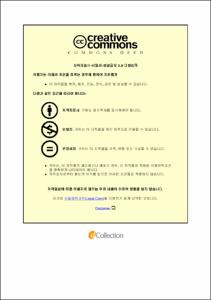방전플라즈마소결법을 통해 제조된 Al-Cu 복합재료의 소결거동분석
- Alternative Title
- Investigation of sintering behavior of Al-Cu composites fabricated by spark plasma sintering process
- Abstract
- The aluminum(Al)-copper(Cu) composites such as Al-20, 50 and 80 vol.%Cu were fabricated by spark plasma sintering(SPS) process. We systematically investigated the effect of intermetallic compounds(ICs) formed during sintering on the mechanical properties and thermal conductivity of the composites. The Al-Cu composite powder prepared by mechanical ball milling process with 300 rpm rotation speed for 24 hours using heptane 20 ml as process control agent (PCA). Field emission-electron probe micro Anlayzer (FE-EPMA) showed that Cu particles were encapsulated by the deformed Al. It was observed that the IC between Al and Cu was formed during SPS and was identified as Cu9Al4 or CuAl2 by the X-ray diffraction (XRD) patterns. It showed that the formation and growth of ICs were controlled by the sintering conditions such as temperature, pressure and holding time. Mechanical properties of Al-Cu composites were evaluated by Vickers hardness test and the hardness value measured was compared with the theoretical values calculated by the rule of mixture. The thermal conductivity of the composites was measured by Laser Flash Thermal Conductivity Measuring System (LFA) at room temperature. The composite fabricated at 380 ℃ with 250 MPa pressure and 5 min holding time showed the highest thermal conductivity (201 W·m-1·K-1). In conclusion, the Al-Cu composites fabricated by SPS showed good mechanical and thermal properties. It also showed that the mechanical and thermal properties of the composite can be controlled by the amount of ICs which depending on the sintering conditions. Experimental results obtained suggest that Al-Cu composites have the possibility to be applied to thermal management system.
- Issued Date
- 2019
- Awarded Date
- 2019. 8
- Type
- Dissertation
- Publisher
- 부경대학교
- Alternative Author(s)
- Dasom Kim
- Affiliation
- 부경대학교 대학원
- Department
- 대학원 신소재시스템공학과
- Advisor
- 권한상
- Table Of Contents
- I. 서론 1
II. 이론적 배경 5
1. 알루미늄 5
2. 구리 9
3. 금속기지 복합재료 13
4. 금속간 화합물 15
5. 복합재료 제조방법 17
가. 분말야금법 17
나. 볼-밀링 공정 18
다. 방전플라즈마 공정 22
III. 실험방법 26
1. 볼-밀링 공정을 이용한 복합분말 제조 28
2. 복합분말의 특성 평가 31
3. 방전플라즈마 소결을 이용한 Al-Cu 복합재료 제조 31
가. 소결 조건 별 Al-Cu 복합재료 제조 31
(1) 온도 별 Al-Cu 복합재료 제조 31
(2) 압력 별 Al-Cu 복합재료 제조 32
(3) 유지 시간 별 Al-Cu 복합재료 제조 32
나. 최적 소결 조건에서 조성별 복합재료 제조 32
4. 복합재료의 특성 평가 35
가. 미세구조 관찰 및 상 분석 35
나. 기계적 특성 평가 35
다. 열적 특성 평가 36
라. IC를 고려한 복합재료의 기계적, 열적 특성 평가 36
IV. 결과 및 고찰 37
1. 복합분말의 특성 평가 37
가. 미세구조 분석 37
나. 상 및 성분 분석 49
2. 복합재료의 특성 평가 51
가. 소결 조건에 따른 복합재료의 소결 거동 분석 51
(1) 온도에 따른 소결 거동 분석 51
(2) 압력에 따른 소결 거동 분석 58
(3) 유지 시간에 따른 소결 거동 분석 62
나 . 조성에 따른 복합재료의 소결 거동 분석 66
다. 복합재료의 상 및 성분 분석 71
라. 기계적 특성 분석 88
마. 열적 특성 분석 94
바. IC를 고려한 복합재료의 기계적, 열적 특성 분석 98
V. 결론 102
참고문헌 104
감사의 글 112
- Degree
- Master
- Files in This Item:
-
-
Download
 방전플라즈마소결법을 통해 제조된 Al-Cu 복합재료의 소결거동분석.pdf
기타 데이터 / 6.94 MB / Adobe PDF
방전플라즈마소결법을 통해 제조된 Al-Cu 복합재료의 소결거동분석.pdf
기타 데이터 / 6.94 MB / Adobe PDF
-
Items in Repository are protected by copyright, with all rights reserved, unless otherwise indicated.